'Dinosaur trees' from Australia begin new life in UK
-
Region
Europe -
Programme
Global Conservation Consortia -
Workstream
Saving Plants -
Topic
Tree Conservation -
Type
Press Release -
Source
BGCI
News published: 31 October 2023
‘Dinosaur trees’ from Australia begin new life in UK.
Botanist James Wong joins Forestry England at Bedgebury National Pinetum and Forest in Kent today to help plant six critically endangered Wollemi Pine trees – the first global ‘metacollection’ to save the iconic species from extinction.
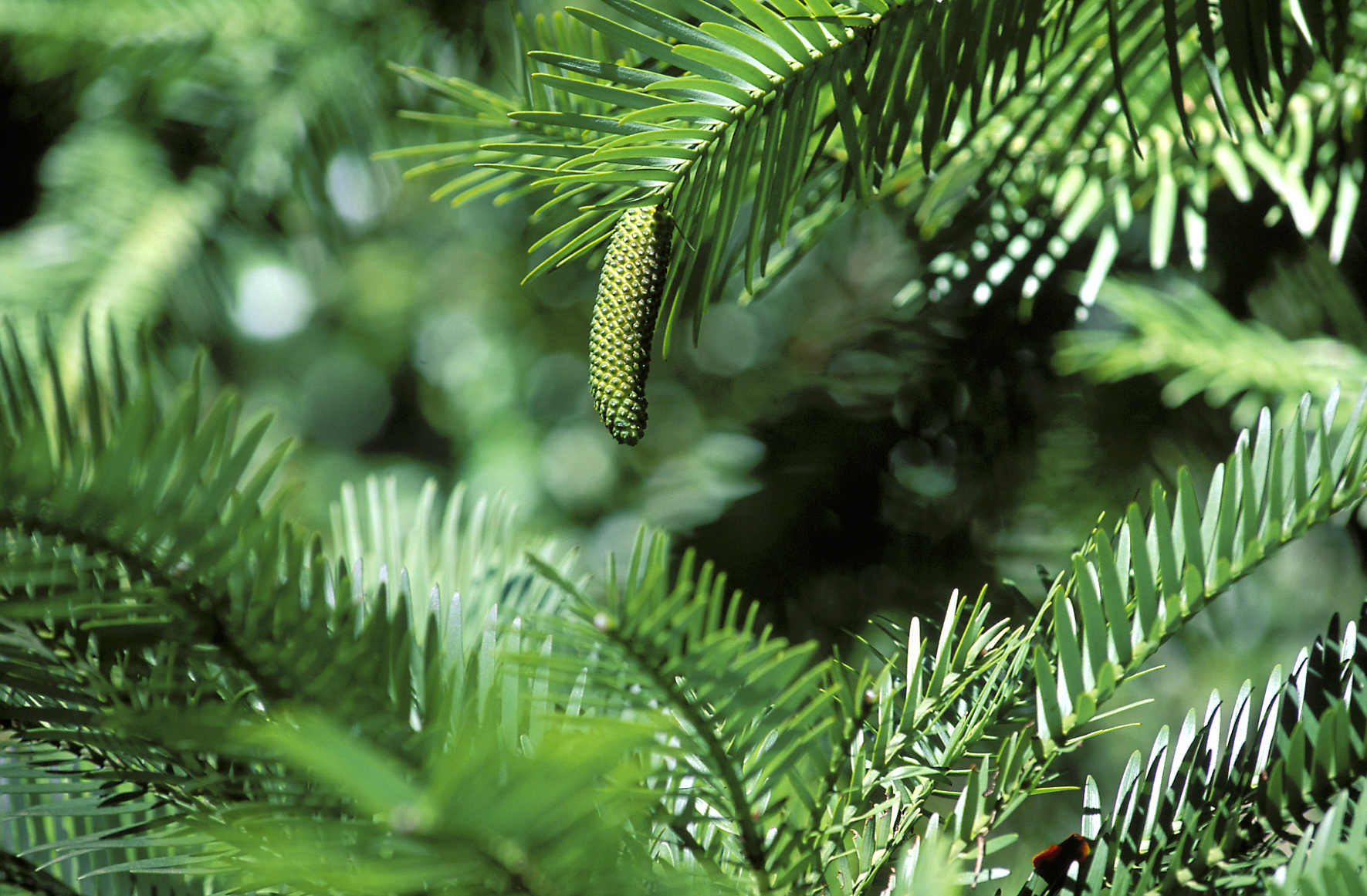
Botanist and broadcaster, James Wong, joins Forestry England at Bedgebury National Pinetum and Forest in Kent today to help plant six critically endangered Wollemi pine trees. The planting event is the first stage of an international conservation effort to establish a flourishing, genetically diverse population of these rare trees across the world.
More than 170 young Wollemi pine trees grown by Botanic Gardens of Sydney were shipped from Australia and have been carefully looked after at Forestry England’s tree nursery at Bedgebury. Six will be planted there today to become part of the living collection at the National Pinetum, while the remaining trees have been distributed to 28 botanic gardens across the UK and Europe. Separate collections of trees have been sent direct from Sydney to five Australian botanic gardens and one in Atlanta in the USA.
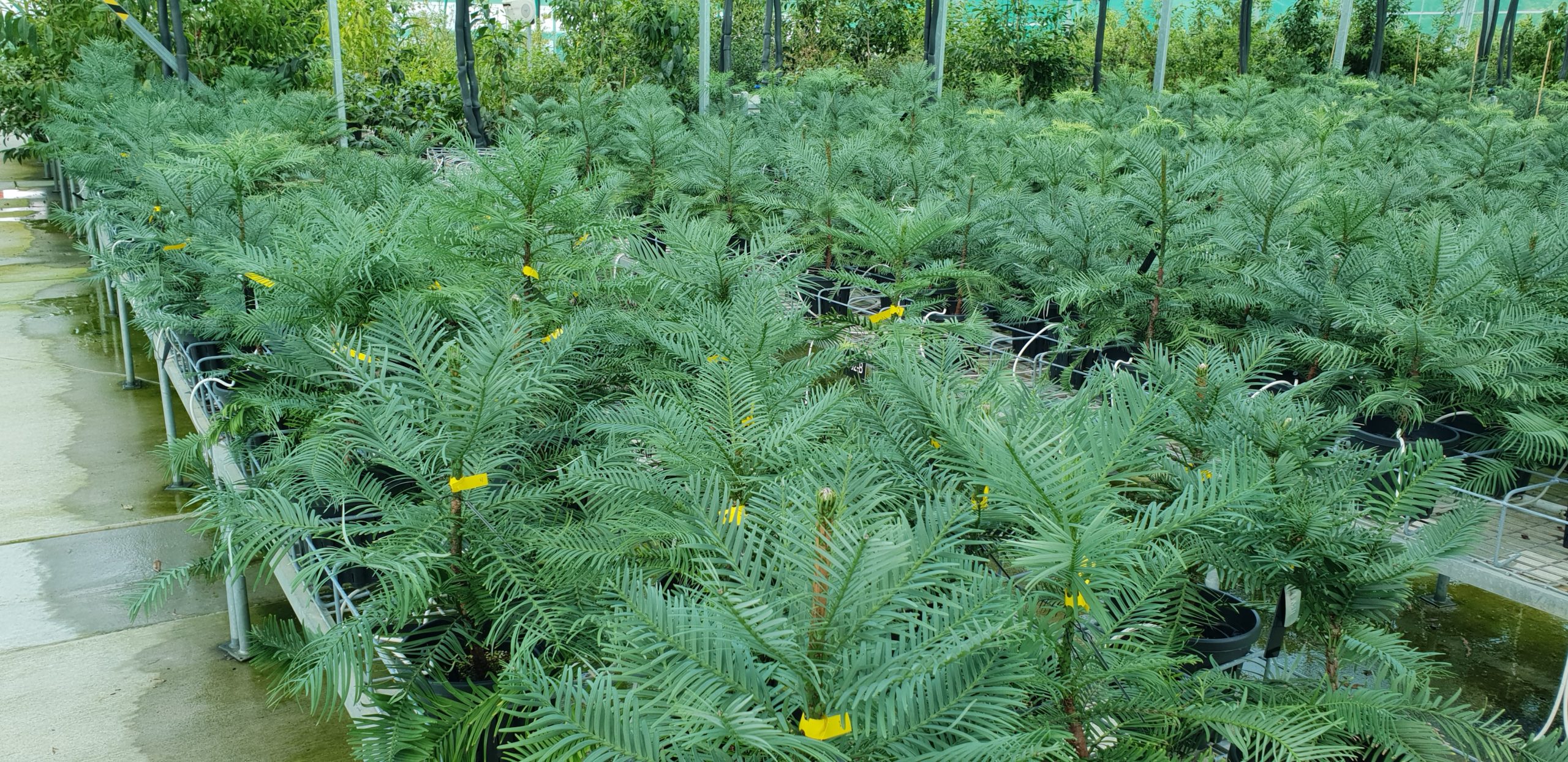
Wollemi pines have been dubbed the ‘dinosaur tree’ because fossil records show they were living 200 million years ago alongside the dinosaurs. It was thought they had become extinct between 70 and 90 million years ago until a chance discovery in 1994, when a small group of living trees was found by an Australian explorer and botanist, David Noble, growing in a remote gorge in the Wollemi National Park in New South Wales. This moment is considered one of the greatest botanical discoveries of our time. The tree species is now classified as critically endangered on the IUCN’s red list, an important indicator of the world’s biodiversity which sets out the risks of extinction for plant and animal species.
Since its discovery, there has been a concerted effort to insure the species against the loss of the remaining wild trees, with fewer than 100 left growing in a gorge 150 kilometres from Sydney. These wild trees are increasingly vulnerable to threats from diseases and wildfires and narrowly escaped being destroyed by wildfires in 2019-2020 which burnt more than 10 million hectares of land in eastern Australia.
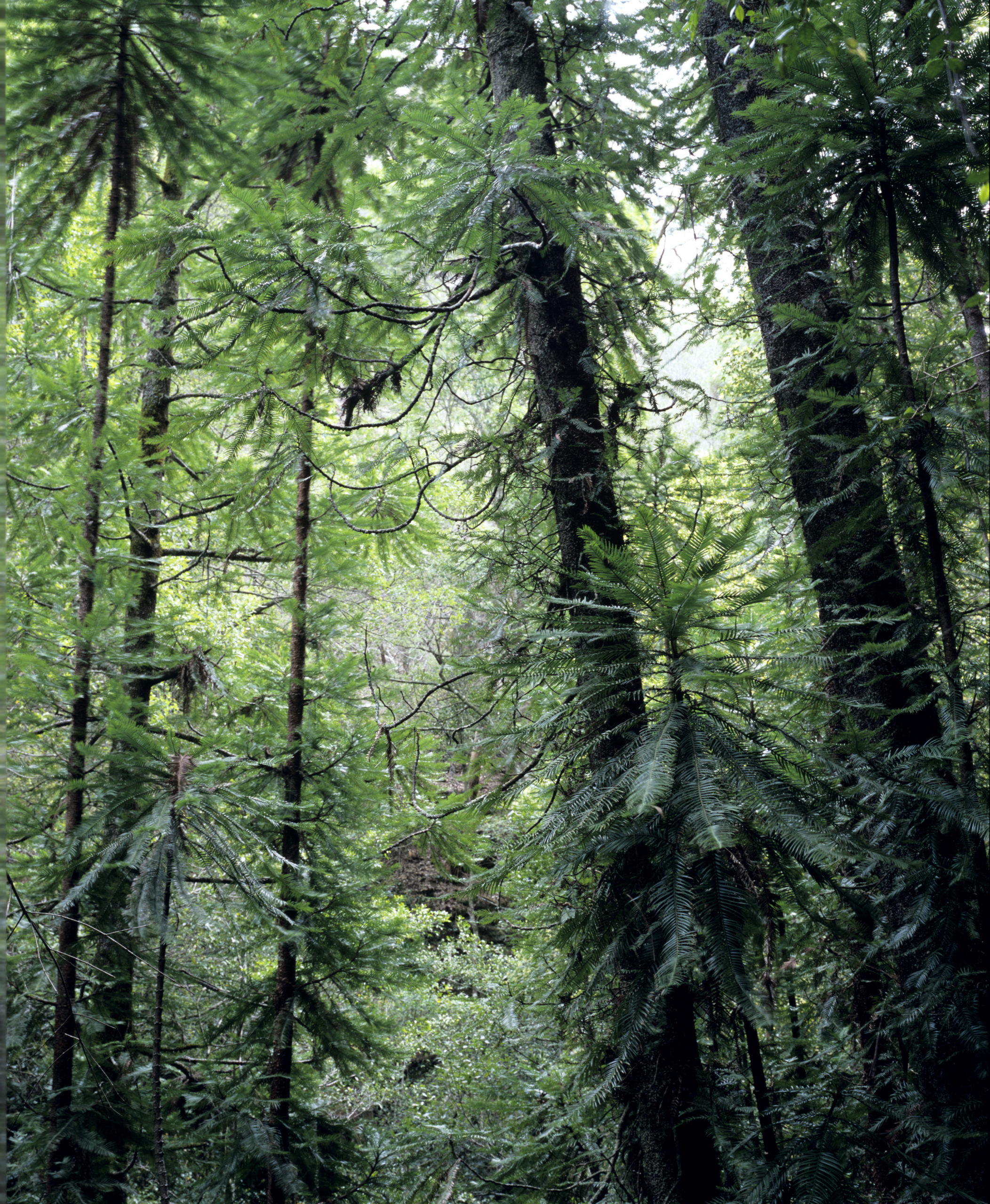
Recent advances in genetic techniques have enabled Australian plant science and conservation experts to identify and breed genetically diverse Wollemi pines. For the first time, these genetically diverse collections of saplings are being made available to botanic gardens across the world. Locations have been chosen with a suitable climate, best suited for the trees to survive climate changes ahead. Together they will create a metacollection, a botanical collection shared by separate organisations but cared for collaboratively to research and conserve the species for the future. Growing the trees worldwide in this way preserves the widest range of genetic diversity found in the wild population and aims to safeguard Wollemi pines from becoming extinct.
Working in partnership, teams from Forestry England, Botanic Gardens of Sydney, and Botanic Gardens Conservation International (BGCI) identified botanic gardens where the climate will best suit the Wollemi pines. They were helped by data from a global citizen science project led by Botanic Gardens of Sydney and Australia’s national science agency, CSIRO, which asked people to share their knowledge about Wollemi pines already growing in private gardens and parks across the world. Wollemi pines have been grown in private gardens and parks since 2005, though these trees are distinct from the trees forming the metacollection and lack their genetic diversity. As the metacollection becomes established, the teams will continue to monitor the trees as they grow and mature.
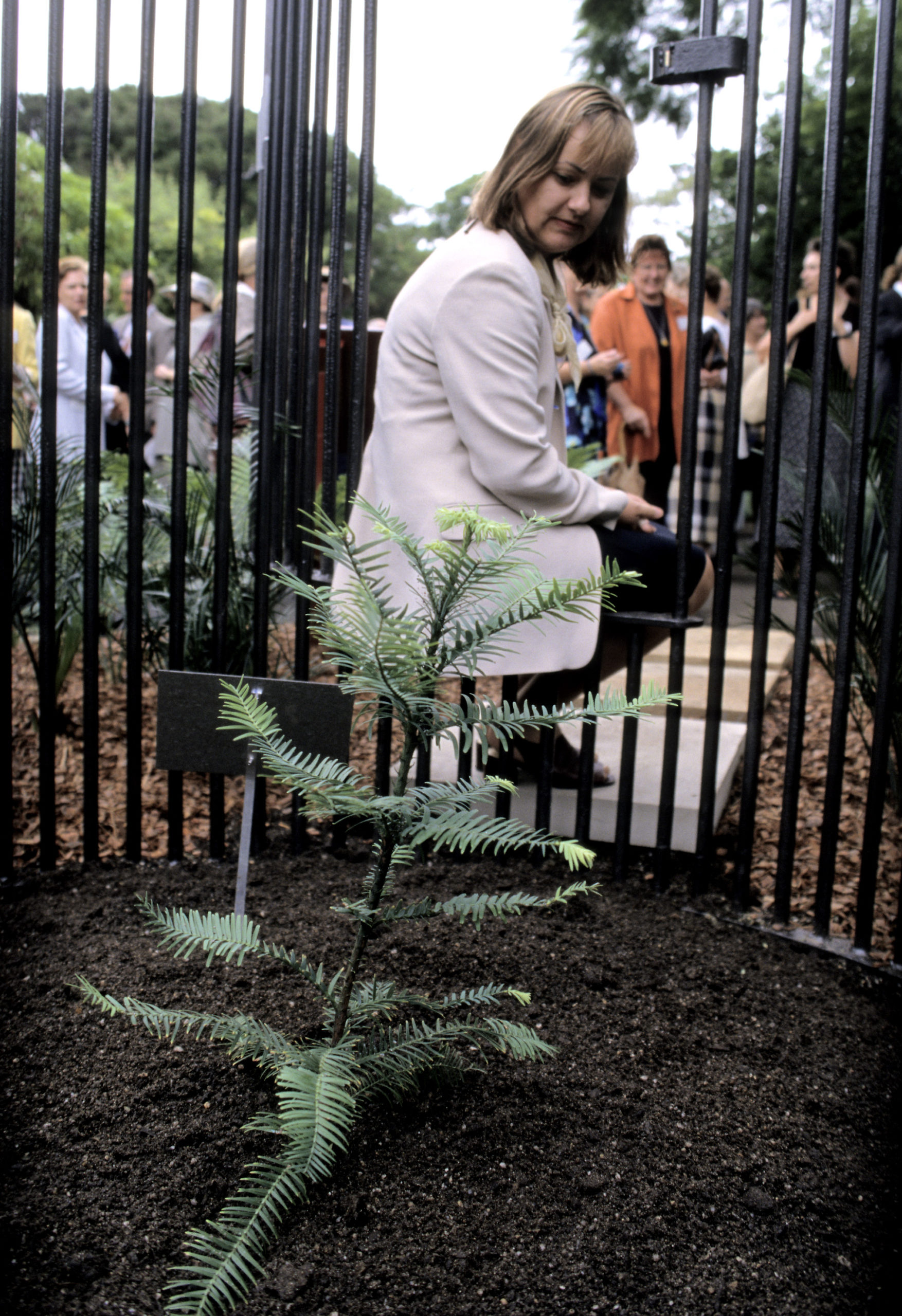
Mike Seddon, Forestry England Chief Executive, said:
“Discovering the lost Wollemi pines in the wild was a truly astounding moment for international tree conservation and to be a leading partner nearly thirty years later in launching this important new metacollection on UK soil is an exciting moment for Forestry England. The six trees we’ve planted today are among the rarest plants in the world and are now taking their place amongst the world-class conifer collection we have at Forestry England Bedgebury. This has been a complex project and today’s achievement reflects the strong partnership between us, Botanic Gardens of Sydney and BGCI.
“As we care for the Wollemi pines we plant today, we’ll be able study the way they grow, learning with the other botanic gardens how they flourish outside Australia. The climate crisis means that across all continents many trees like Wollemi pines are facing urgent threats to their survival. We know that 34 per cent of conifers are now endangered and our ongoing work to research, propagate and save tree species is more vital than ever.”
James Wong said:
“Since I first heard the story about the incredible rediscovery of the Wollemi pines, these trees have captured my imagination. Knowing they grew in the landscape of the dinosaurs 200 million years ago takes us back through time in an extraordinary way. It also brings us closer to the fragility of important species like these and how vital it is to find solutions to the threats they now face from climate change. I’m excited that through this project these majestic conifers, one of the most botanically fascinating trees on earth, are set to continue not just surviving but thriving into the future.”
John Siemon, Director of Horticulture & Living Collections at Botanic Gardens of Sydney, said:
“Botanic Gardens of Sydney is dedicated to advancing fundamental knowledge of flora and driving effective conservation solutions to ensure the survival of plants, and all life that depends on them. Since the remarkable discovery of the Wollemi Pine almost 30 years ago, the world fell in love with this curious conifer, and we have been dedicated to safeguarding this rare species from extinction.
“Over the last three decades, our scientists and conservation horticulturists have assembled a population of Wollemi Pines in our living collection and seedbank, which represents the full range of its genetic diversity in the wild. Genetically diverse plantings aim to maximise health, longevity, and adaptive resilience to climate change and are crucial for the long-term success of ex-situ and restoration projects.
“Having genetically diverse Wollemi Pines growing in botanic gardens around the world is a great example of how collaborative international conservation efforts will help provide a vital insurance policy against the extinction of this iconic tree in the wild.”
Paul Smith, Secretary General of Botanic Gardens Conservation International, said:
“Protecting and learning more about the world’s threatened tree species is a global undertaking. As keystone species, at the centre of the web of life that supports humanity and millions of other species, we cannot afford to allow the extinction of any of the world’s 60,000 tree species. I’m delighted that Bedgebury National Pinetum is at the forefront of this vital work.”
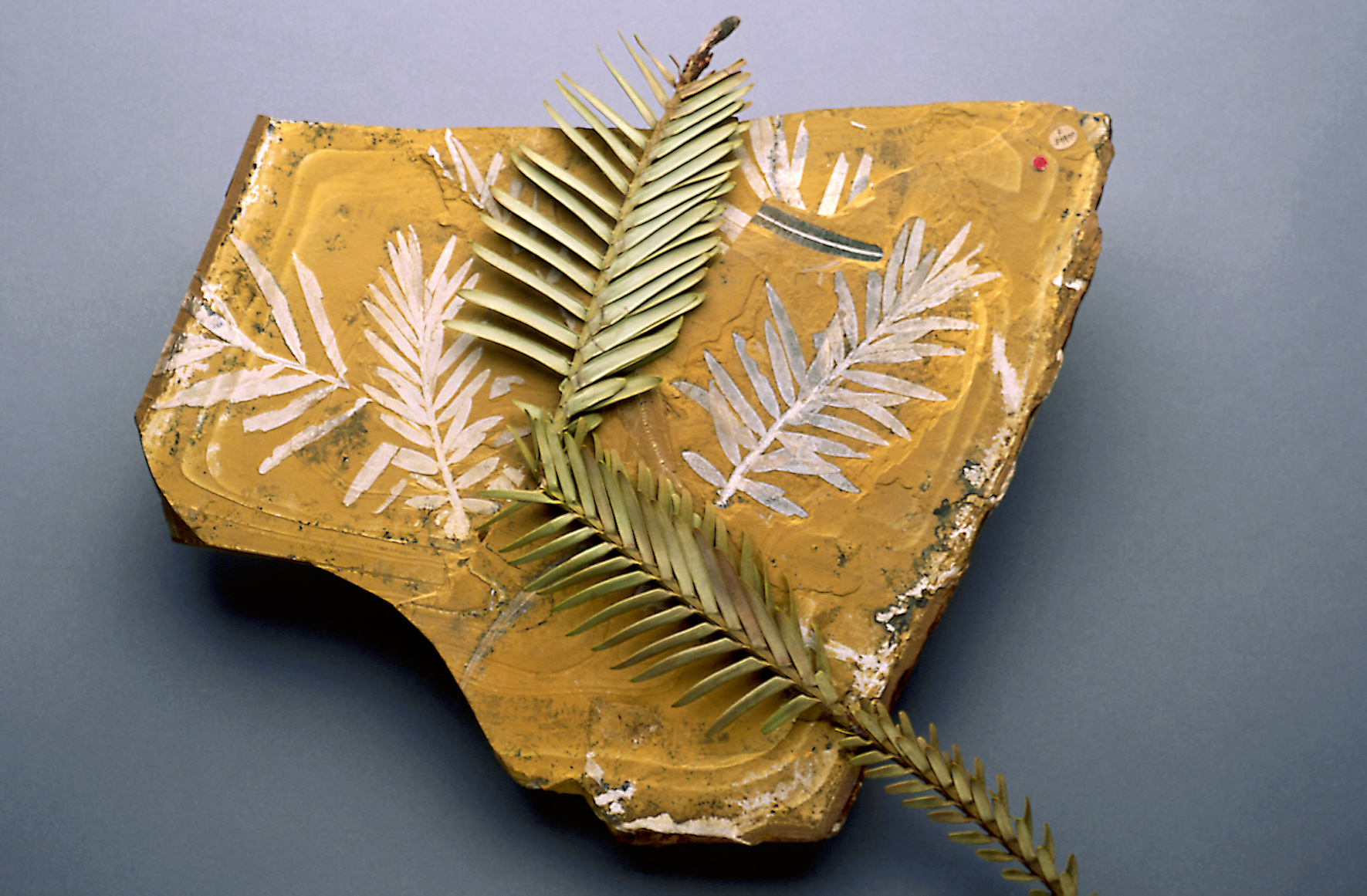
To help protect the biodiversity of wild trees, Forestry England Bedgebury National Pinetum grows more than 2,000 tree and shrub seedlings every year. Some are planted into the living collection, and others distributed to other botanic gardens and safe sites across the UK and Europe. As well as offering visitors beautiful, awe-inspiring trees to walk amongst and enjoy, many of Bedgebury’s species are a ‘living gene bank’ of trees. They provide vital seeds, genetic material and research opportunities and help provide resilient future forest trees, well adapted to changing climate conditions and pests and diseases.
As well as collecting tree seed from conifers growing at Bedgebury, the expert team also collects seeds from endangered species from all over the world. They use some of these seeds to grow new trees and give others to the Millennium Seed Bank. Coordinated by Royal Botanic Gardens, Kew, this is a collection of over 2.4 billion seeds from around the world which acts a bank to conserve plant species for the future.
Media Contact: Naomi Fuller, Media Relations Officer | media@forestryengland.uk
Support BGCI
You can support our plant conservation efforts by sponsoring membership for small botanic gardens, contributing to the Global Botanic Garden Fund, and more!
Conservation Action Tracker
BGCI’s Conservation Action Tracker provides information on conservation actions for tree species.